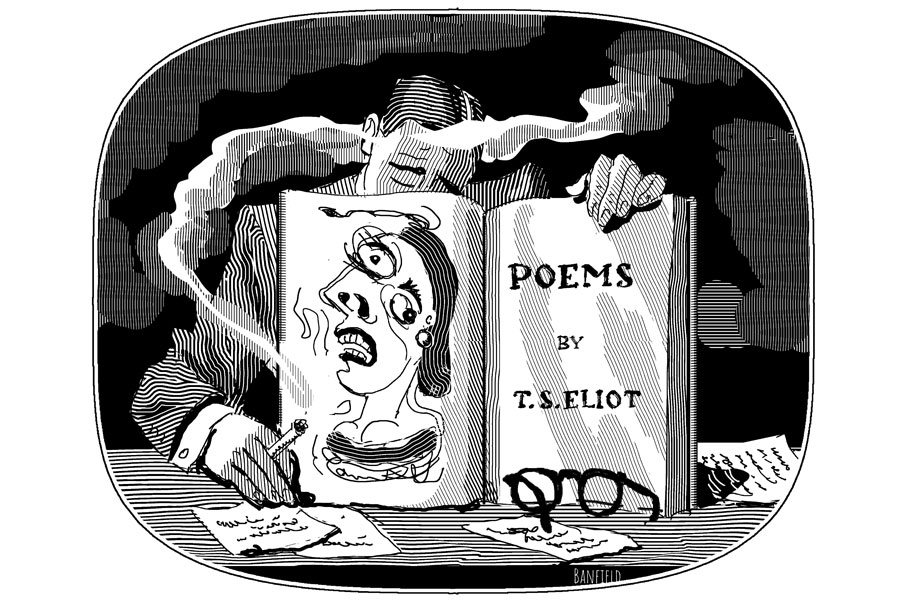
Published Summer 2023
Most anybody who has heard a thing or two about modern poetry can probably tell you that T.S. Eliot (1888–1965) is famous for writing The Waste Land. If that person knows a little bit more about the subject, he may add that it was Eliot who said the world ends “Not with a bang but a whimper.” An aficionado might well tell you that The Waste Land, Rainer Maria Rilke’s Duineser Elegien (Duino Elegies), and Paul Valéry’s La jeune Parque (The Young Fate) are the founding works of literary modernism. They form “a boundary stone where the old culture passes into the new,” as Valéry’s learned translator Nathaniel Rudavsky-Brody declares in the introduction to The Idea of Perfection: The Poetry and Prose of Paul Valéry (2020). A century after the publication of Eliot’s masterpiece in 1922, it remains the defining work of modern poetry in the English language, much as James Joyce’s contemporaneous Ulysses continues to stand as the supreme modern novel in English.
The most obvious characteristic of Eliot’s signature poem is that it is hard to understand. There are allusions to the Gospel According to Saint Luke, Saint Augustine’s Confessions, and a scholarly investigation into whether the Holy Grail legend originated in primitive vegetation rites. There are quotations from Wagnerian opera, 19th-century French poetry, Elizabethan revenge tragedy, Dante’s Divine Comedy, and the Upanishads (in bloody Sanskrit, which the poet studied at Harvard). Page upon page of the author’s endnotes tend to frustrate the ordinary reader whom they presumably profess to enlighten. If you wish to make serious headway toward comprehension, you have to accept the poet’s demands and submit to the discipline of educating yourself according to his lights.
Click here to continue reading.
Algis Valiunas is a Fellow at the Ethics and Public Policy Center and a contributing editor to The New Atlantis, a journal about the ethical, political, and social implications of modern science technology.
Algis Valiunas is a Fellow at the Ethics and Public Policy Center and a contributing editor to The New Atlantis, a journal about the ethical, political, and social implications of modern science technology.








